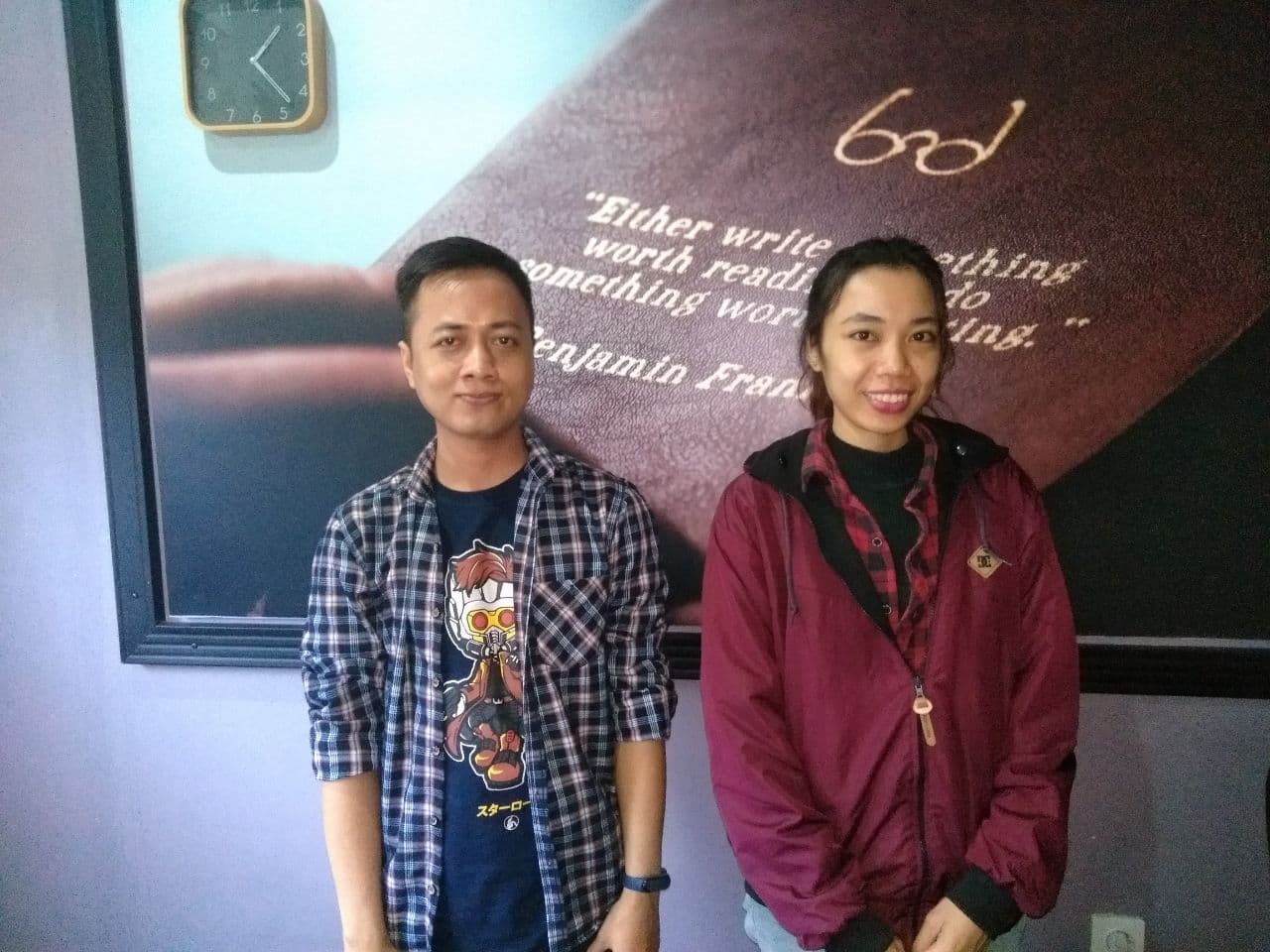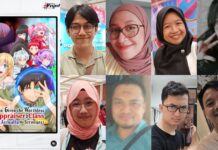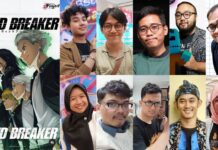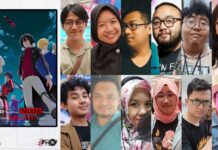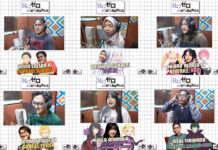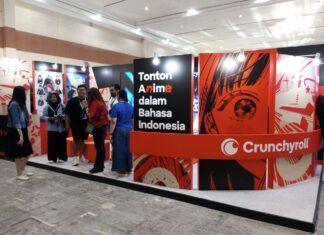This article is translated from KAORI Nusantara’s Indonesian site.
In November 2021, KAORI Nusantara visited and observed the production of the Indonesian dub of Demon Slayer: Kimetsu no Yaiba. The dub is produced by Jakarta-based dubbing studio Advanced Technology Multimedia Studio (ATM Studio). During the visit, we talked with ATM Studio’s producer, Risa Sondari Aprilianta, who explained more about the casting and production process of the anime. Our discussion with Risa is available in the first part of this article series, which can be read here.
After speaking with Risa, we also talked with two dubbing operators of ATM Studio, Sharon Haring and Hermawan. As operators, their job is to guide and direct the voice cast during the dubbing process. Interestingly, other than working as operators, both Sharon and Hermawan also work as voice actors. Both of them already voiced many characters since the start of their career in 2014. Both of them are also credited as cast members in this Demon Slayer: Kimetsu no Yaiba Indonesian dub. Sharon voiced Nezuko, while Hermawan voiced Obanai Iguro.
Their Experience at Anime Dubbing
Both Sharon and Hermawan joined ATM Studio in 2014. At first, they only got small roles like voicing side characters or mob characters. Now, their jobs aren’t only limited to voice acting. ATM Studio also hires them to become dubbing operators. As dubbing operators, their job is to direct the voice actors in the dubbing process and oversee the dubbing process.
Interestingly, Demon Slayer: Kimetsu no Yaiba is the first anime project that they dubbed. While Sharon is more familiar with Korean comics and manhwa, Hermawan himself admitted that he’s a fan of Demon Slayer: Kimetsu no Yaiba. Hermawan was very happy when he heard that ATM Studio would handle the Indonesian dub of the anime. For him, it was a good chance to voice some characters from his favourite series.
According to Herwawan, being a fan of Demon Slayer: Kimetsu no Yaiba helped him both as a voice actor and a dubbing process. Just like we wrote in the previous article, the dubbing process in Indonesia could have a tight deadline. Sometimes, the voice actors don’t have any time to research. Because Hermawan is a fan, he already understands a lot about the story and the character, which helps him during the dubbing process.
Dubbing Process: From Script to Sound
When it comes to the script, Hermawan and Sharon tried to not make any changes to the original script, especially when the deadline was tight. However, that doesn’t mean there weren’t any changes in the dubbing process. Sometimes they changes some dialogue lines if they found other lines that would be more suitable. If the translated script from the client didn’t sound natural, they changed the dialogue into something that would be more similar to how people talk in daily life. Of course, these changes should be approved by the client.
Voicing expressive and spirited characters also became another challenge for them. Many characters in Demon Slayer: Kimetsu no Yaiba have this characteristic. Both Sharon and Hermawan had to retake a lot of lines just to find the right expression. Since Demon Slayer: Kimetsu no Yaiba was their first anime project, they wanted to make sure they got it right.
Fortunately, Hermawan himself often watches anime. For him, being an anime watcher helps with doing a project that originally comes from Japan. Because he often listens to how the character talks in Japanese, he didn’t feel any particular difficulties voicing a character that uses the Japanese language. Not to mention, he’s also a fan of Demon Slayer: Kimetsu no Yaiba.
Responding to Negative Comments on Social Media
In Indonesia, it’s common to see negative comments about the quality of Indonesian dubs. While not everyone may agree with that sentiment, comments that mocked the Indonesian dub can be found on Indonesian social media. They even said that amateur fandubbers on YouTube and TikTok have better voice acting skills than professional dubbers, because they sound more similar to the Japanese voice.
For Sharon and Hermawan, there are big differences between professional dub and amateur dub. Just because fandubbers sound more similar to the original Japanese voices, that doesn’t mean it will work in professional environment. Fandubbers are mostly doing their work for fun, but in the dubbing industry, experience and knowledge about the dubbing process, as well as professionalism, will be a huge benefit.
However, both Sharon and Hermawan are open to amateur fandubbers joining the industry. As mentioned in the previous part, ATM Studio sometimes shares casting calls on their social media. If the fandubbers are confident with their skill, Sharon encourages them to join the casting call. “Just come to the studio and join our open casting. Show your skill. If you’re really that good, you can join us.”
The Indonesian Anime Times | Interview and photo by Dodi Kusumanto | Translation by Dany Muhammad | The original Indonesian article can be read here.

